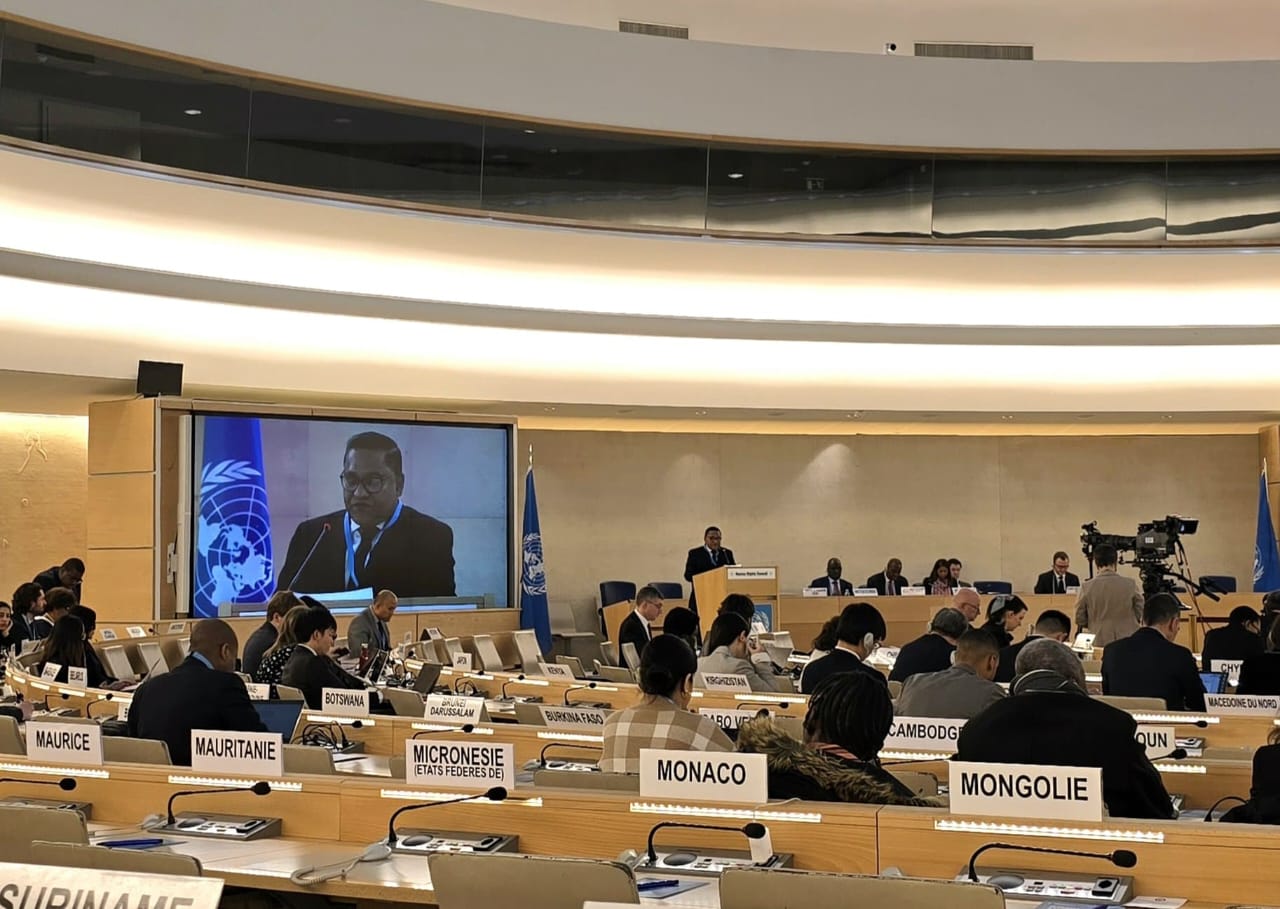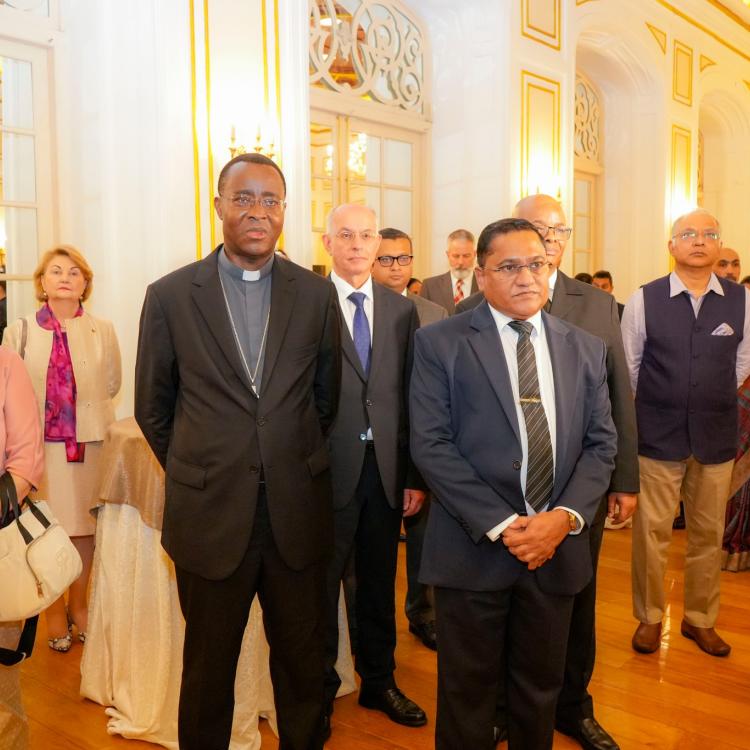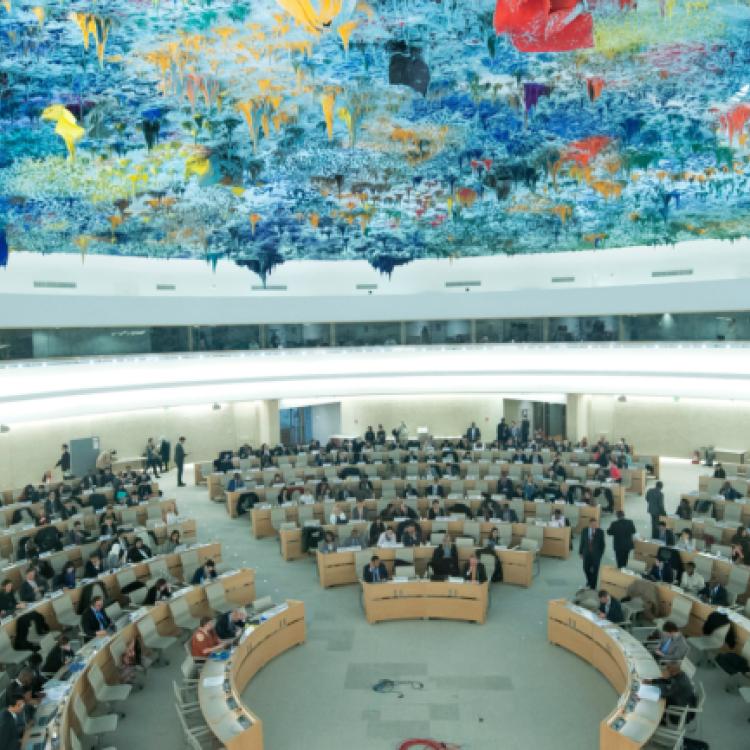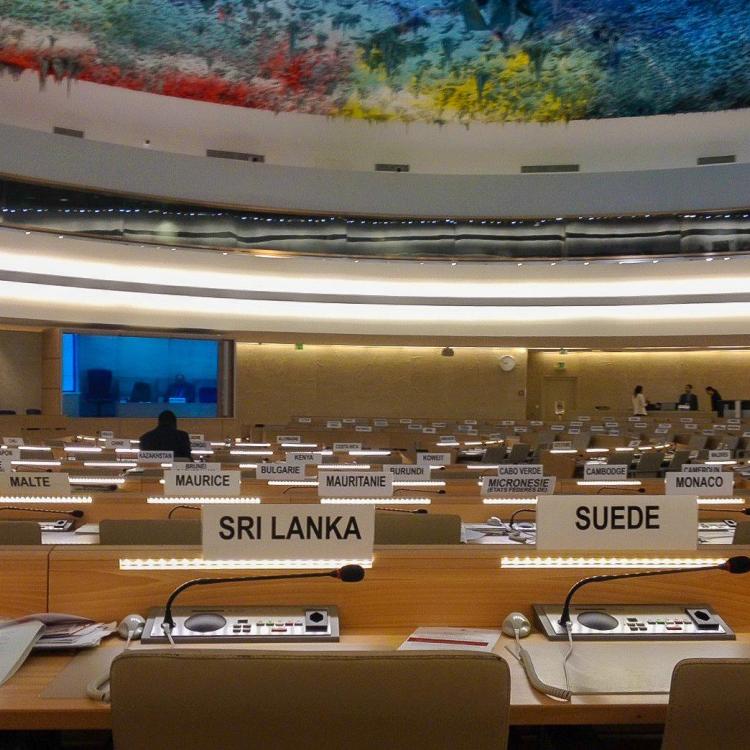
At the 58th Regular Session of the United Nations Human Rights Council (UNHRC), Sri Lanka’s Foreign Minister Vijitha Herath delivered a speech, echoing the calls of previous administrations, pushing so-called "domestic mechanisms" while rejecting international accountability for war crimes and human rights violations.
Despite Herath claiming there had been an “economic, social and political transformation”, Anura Kumara Dissanayake’s administration has already rejected the UNHRC’s latest resolution on accountability, continuing Sri Lanka’s long-standing obstruction of justice for Tamils.
Herath’s speech reinforced Sri Lanka’s position, insisting that domestic institutions such as the Office on Missing Persons (OMP), Office for Reparations, and Office for National Unity and Reconciliation (ONUR) would be “strengthened” to ensure accountability.
His words mirror much of the same rhetoric used by previous Sri Lankan regimes, from Mahinda Rajapaksa to Ranil Wickremesinghe, all of whom used domestic commissions to deflect international pressure while offering no meaningful justice to Tamil victims. The domestic mechanisms have long been discredited by Tamils and human rights groups. The Office on Missing Persons (OMP) has failed to bring back a single disappeared person despite thousands of cases of enforced disappearances, including those who surrendered to the Sri Lankan military in 2009, whilst the Office for Reparations has ignored the core demands of Tamil families seeking answers about their loved ones.
Notably, Herath made no reference to the Sri Lanka Accountability Project (SLAP), a UN initiative tasked with gathering evidence of war crimes for future legal proceedings. Instead, he pushed the domestic approach, which Tamils and international actors alike have repeatedly rejected as a tool for impunity rather than justice.
His speech comes in the first UNHRC session since the Sri Lankan Cabinet formally rejected a UNHRC resolution that extended the mandate of the war crimes evidence-gathering mechanism for another year in October 2024. The government claimed it would pursue accountability only through domestic procedures.
At the last UNHRC session, Sri Lanka rejected Resolution A/HRC/57/L.1, which mandated the Office of the High Commissioner for Human Rights (OHCHR) to continue collecting evidence of Sri Lanka’s human rights violations for potential war crimes trials.
Herath also attempted to present the government’s efforts in the North-East as progressive development, citing the opening of the Palali-Achchuveli main road and investment in libraries, including the Jaffna Public Library.
However, he failed to mention that Sri Lanka continues to occupy large swathes of Tamil land with military forces, blocking the rightful return of displaced Tamil families. Sri Lanka has over 16 Army Divisions stationed in the Tamil homeland, making it one of the most militarised regions in the world, per capita.
Even as Herath spoke of "reconciliation," the Sri Lankan state continues to occupy land and construct Buddhist temples in Tamil-majority areas, major points of contention for Tamils in recent weeks.



